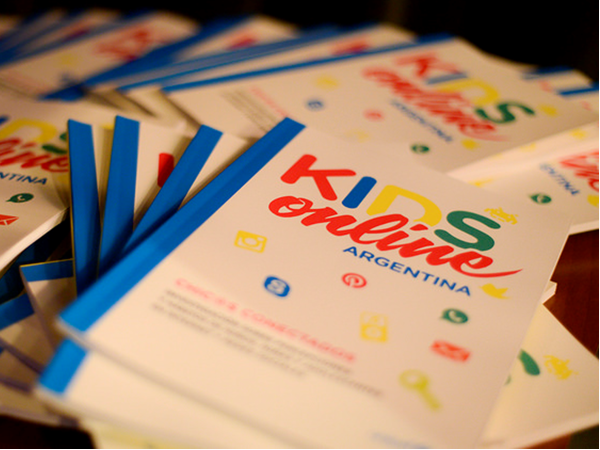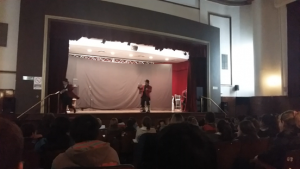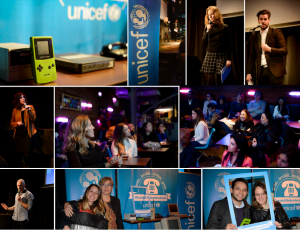 The Global Kids Online study was carried out by UNICEF Argentina, Mori and Ipsos between August 2015 and May 2016 and demonstrated that, while children become internet users at a younger age, many of them experience harm from online risk. The survey of 1,106 adolescents aged 13 to 18 years showed that 78% of them experience something upsetting with the most common negative incidents being related to receiving unpleasant and disturbing messages (33%). As a response, the most common reaction to upsetting content is to block the person (65%) and when looking for help, the preferred person to seek support from is a peer (56%), rather than an adult (Ravalli and Paoloni, 2016). Even though children access the internet most often at their home, 68% say that their families know little about their internet activities. Half of the children do not follow the recommendations that their parents or carers make and 9% are not given any recommendations (Ravalli and Paoloni, 2016).
The Global Kids Online study was carried out by UNICEF Argentina, Mori and Ipsos between August 2015 and May 2016 and demonstrated that, while children become internet users at a younger age, many of them experience harm from online risk. The survey of 1,106 adolescents aged 13 to 18 years showed that 78% of them experience something upsetting with the most common negative incidents being related to receiving unpleasant and disturbing messages (33%). As a response, the most common reaction to upsetting content is to block the person (65%) and when looking for help, the preferred person to seek support from is a peer (56%), rather than an adult (Ravalli and Paoloni, 2016). Even though children access the internet most often at their home, 68% say that their families know little about their internet activities. Half of the children do not follow the recommendations that their parents or carers make and 9% are not given any recommendations (Ravalli and Paoloni, 2016).
Based on the findings, UNICEF Argentina identified digital citizenship and literacy as the core focus of their impact campaigns and activities. The areas of strategic work include policy-making, educational opportunities, awareness rising, and multi-stakeholder engagement and the team has managed to integrate a number of creative approaches to increase the success of their activities, including using media campaigns with public figures and children’s theatre performances.
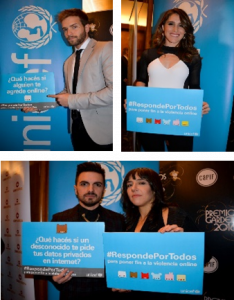 According the María José Ravalli, one area where the efforts of the team have concentrated is an early engagement with stakeholders and an ongoing dialogue. At the start of the Global Kids Online project UNICEF Argentina initiated a dialogue with key stakeholders from the government bodies, the public sector, the industry, media, the academic sector, and civil society to discuss the possibilities offered by the project and how best to inform policy and practice related to digital citizenship. Once the data was gathered, UNICEF held a series of dialogues on digital citizenship in order to deepen the analysis of the results and expand its implications on policy and practice. With the release of the final results, UNICEF Argentina hosted a number of roundtable discussions with representatives from academia, relevant ministries or bodies involved in policies around ICTs and the private sector. This approach contributed to exploring the potential of the project, generating recommendations, and identifying key challenges for protecting and promoting the rights of children and adolescents in relation to their digital citizenship.
According the María José Ravalli, one area where the efforts of the team have concentrated is an early engagement with stakeholders and an ongoing dialogue. At the start of the Global Kids Online project UNICEF Argentina initiated a dialogue with key stakeholders from the government bodies, the public sector, the industry, media, the academic sector, and civil society to discuss the possibilities offered by the project and how best to inform policy and practice related to digital citizenship. Once the data was gathered, UNICEF held a series of dialogues on digital citizenship in order to deepen the analysis of the results and expand its implications on policy and practice. With the release of the final results, UNICEF Argentina hosted a number of roundtable discussions with representatives from academia, relevant ministries or bodies involved in policies around ICTs and the private sector. This approach contributed to exploring the potential of the project, generating recommendations, and identifying key challenges for protecting and promoting the rights of children and adolescents in relation to their digital citizenship.
Input into the legal and policy framework is another priority area. Based on its expertise from the study, UNICEF was invited to provide input into the new Convergent Communications Law discussed in government which will change the regulation of telecommunications, cable, television and audiovisual services in general. As a result, the Commission working on the proposal issued a document stating the key principles, one of which refers to the promotion of digital and media literacy. UNICEF also took part in creating a Digital Coexistence Program with the General Direction of Culture and Education, the Provincial Agency for Children and Adolescents of the Ministry of Social Development and the Ministry of Justice of the province of Buenos Aires. The program aims at the construction of digital citizenship in children and their families, in educational services, in protection, access to justice, youth leaders and the media. As part of the program, a guide and specials materials with information for adults were designed with the aim of raising awareness about the importance of accompanying children in their digital consumption. Workshops were held with educators and practitioners.
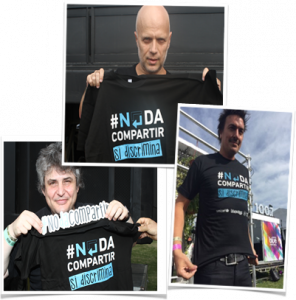 Curriculum development and training: As part of the Digital Coexistence Program, UNICEF is currently developing a curriculum for teachers and protection officers, parents and children in the largest province in the country. The Digital Coexistence programme was an intersectoral programme in the province of Buenos Aires involving the Children’s Secretariat, Ministry of Justice and Ministry of Education, UNICEF and NGOs. Its aim was capacity-building for teachers, child protection and justice officers, children and families, and it employed face-to-face and digital training, as well as an online campaign.
Curriculum development and training: As part of the Digital Coexistence Program, UNICEF is currently developing a curriculum for teachers and protection officers, parents and children in the largest province in the country. The Digital Coexistence programme was an intersectoral programme in the province of Buenos Aires involving the Children’s Secretariat, Ministry of Justice and Ministry of Education, UNICEF and NGOs. Its aim was capacity-building for teachers, child protection and justice officers, children and families, and it employed face-to-face and digital training, as well as an online campaign.
Lastly, UNICEF’s efforts concentrate on reaching the wider public. The team worked with a range of public figures, consultants, and media partners to reach the wider public with its campaigns, choosing a range of formats that presented the findings and lessons learned in a dynamic and attractive way, using humour in key campaign messages, theatre performances for children, public campaigns, concerts, etc. For example, for children a participatory theatre play was created in which 10-year-old students participated. The script of the play was based on research findings from the study. Moreover, a ‘Let’s talk about everything’ web platform and chat helpline were established with the National Youth Secretariat.
Further resources
More about the knowledge exchange and dissemination work of UNICEF Argentina and the Global Kids Online network can be found in this recent impact report.
Country findings from Argentina and the other participating countries.
Further materials from the study
Other publications by UNICEF Argentina
Introduction video of Digital Coexistence Programme
Digital Coexistence Programme on Buenos Aires Province website
References
Ravalli, M and Paoloni, P (2016) Global Kids Online Argentina: Research study on the perceptions and habits of children and adolescents on the use of technologies, the internet and social media. Buenos Aires: UNICEF Argentina, www.globalkidsonline/argentina
Ravalli, M (2017) Engaging with stakeholders: The experience of Argentina. In Livingstone et al. Global Kids Online: Knowledge Exchange and Impact Meeting Report. London: London School of Economics and Political Science. http://blogs.lse.ac.uk/gko/working-on-knowledge-exchange-and-impact/
You can sign up to receive the latest research news from Global Kids Online by email. Please forward this message to anyone you think may be interested.
Image credits: UNICEF Argentina
Post authors: Mariya Stoilova and María José Ravalli
You can sign up to receive the latest research news from Global Kids Online by email. Please forward this message to anyone you think may be interested.

